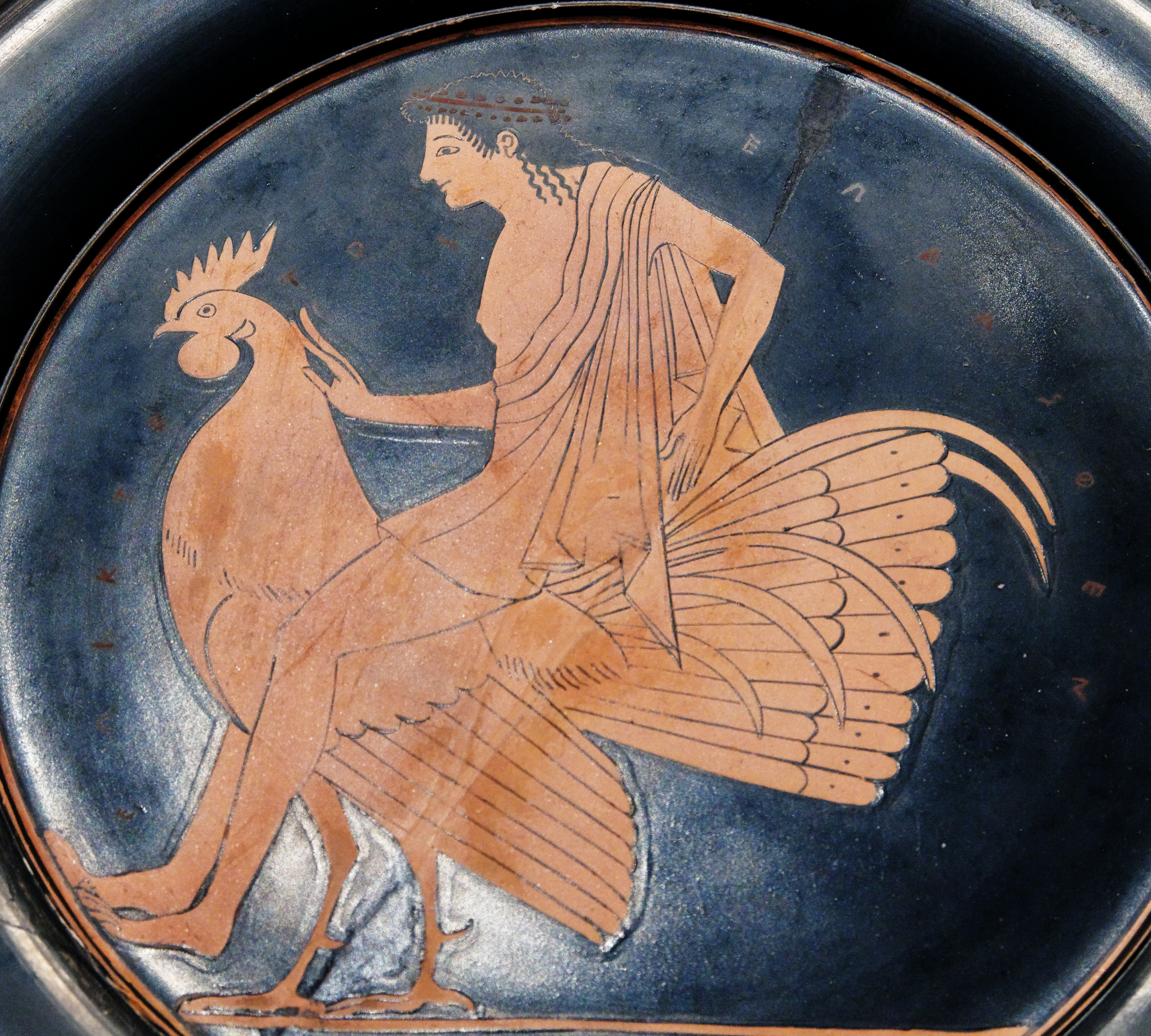71.
“Malice attends difficulties.”
<Interpretation>
“Those who rage with insatiable malice fashion envy even for the poor.”
Εἰς ἀπορίαν φθόνος.
<῾Ερμηνεία.>
᾿Απλήστῳ βασκανίᾳ λυσσῶντές τινες
Καὶ τοῖς πένησι τὸν φθόνον ὁπ<λί>ζουσι.
72.
“Never do good, and try not to receive any evil.”
<Interpretation>
“By treating the wicked well, you do not seem to me to be wise. For the most wicked always work the worst evils upon themselves.”
Καλὸν μὴ ποιήσῃς καὶ κακὸν οὐ μὴ ἀπολάβῃς.
<῾Ερμηνεία.>
Κακοὺς εὖ ποιῶν οὔ μοι δόξεις σωφρονεῖν·
Οἱ γὰρ κάκιστοι δρῶ<σιν ἀεί σε κακῶς.>
73.
“The times may lead one up, but they may also lead one down.”
<Interpretation>
“Time will give mortals both the possession of wealth as well as the travails of poverty.”
Καιρὸς ἀνάγει καὶ καιρὸ<ς αὖ κατάγει.>
<῾Ερμηνεία.>
<Χρό>νος ἀμφότερα τοῖς βρο<τοῖς κομίζει>,
Καὶ πλούτου κτῆσιν καὶ πε<νί>ας τὴν ν<όσ>ον.
74.
“The dog who goes to the manger does not eat, and stands in the way of the ass.”
Interpretation
“The display of a shameless man’s wickedness will hinder another from the nourishment which he himself cannot get hold of.”
Κύων ἀναπεσὼν εἰς φάτνην αὐτός τε οὐκ ἐσθίει τῷ τε ὄνῳ
ἐμπ<οδ>ίζει.
῾Ερμηνεία.
Πονηρίας ἔνδειξις ἀνδρὸς ἀναιδοῦς
Τροφῆς κωλύειν ἄλλον, ἧς οὐχ ἅπτεται.

75.
“The words of an orator, the deeds of a rooster.”
Interpretation:
“False people argue their case with empty words, vainly reproaching the words of giants.”
Λόγοι μὲν ῥήτορος, ἔργα δ’ ἀλέκτορος.
῾Ερμηνεία.
Τοῖς <κενοῖς> λόγοις ἐλέγχονται οἱ ψευδεῖς,
Γιγάντων ῥήματα <μάτην προφέροντες>.

76.
< > of your heart.
<Interpretation>
“Willingly escape notice, and do not be too eager to display the particulars of your mind to every man.”
< > τῆς καρδίας σου.
<῾Ερμηνεία.>
῾Εκὼν λάνθανε καὶ μὴ παντὶ ἀνθρώπων
Τὸ προσεχὲ<ς> τῆς φρενὸς ἐπάγειν ἔθελε.
77.
“It is possible to fail, it is not possible to be indifferent.”
Interpretation
“It is proper for a man bearing the outcome of fortune to flee from carelessness of mind.”
᾿Ατυχεῖν ἔξεσ<τιν>, ἀμελεῖν οὐκ ἔξεστιν.
῾Ερμηνεία.
῎Ανδρα φέροντα τῆς τύχης τὸ σύμπτωμα
Τῆς γνώμης τὸ ῥάθυμον ἐκφυγεῖν πρέπει.
78.
< >
Interpretation
“One who wishes to be careless in practical affairs will live a dark and painful life.”
< >
῾Ερμηνείς.
῾Ο ῥαθυμεῖν ἐθέλων ἐν τοῖς πρακτέοις
Σκοτεινὸν ἕξει καὶ λυπηρὸν τὸν βίον.
79.
“The incense does not make its way up to a good god.”
Interpretation
“It is a custom of the wicked not to wish to repay good people with divine honors.”
᾿Αγαθῷ <θε>ῷ λίβανος οὐκ ἀναβαίνει.
῾Ερμηνεία.
Σύνηθές ἐστι τοῖς κακοῖς οὐκ ἐθέλειν
Τοὺς ἀγαθοὺς ἀμείβεσθαι ταῖς θείαις τιμαῖς.
80.
“Repulse them when they begin, and they will not rebel.”
Interpretation
“If you know how to hinder wickedness in its infancy, you will be far from disturbance and wicked wandering.”
᾿Αρχομένους ἀνάστελλε καὶ οὐ μὴ στασιάσουσιν.
῾Ερμηνεία.
᾿Αρχὴν κακὴν μέλλουσαν εἰδὼς κωλύειν
Ταράχου μακρὰν ἔσῃ καὶ κακῆς πλάνης.

These are pretty good. None of them are way out there. They mostly make sense–but they’re lacking that something special…
The Aesopic proverbs are of rather inconsistent quality. As enjoyable as some of them are, I spend a disproportionate amount of time per word on some of these simply because they can occasionally be so puzzling. I suppose that it ought not to be surprising, since even old proverbs in English can seem strange to us.
I am, however, looking forward to finishing these off; once I do, I will start putting up the Salutati stuff.